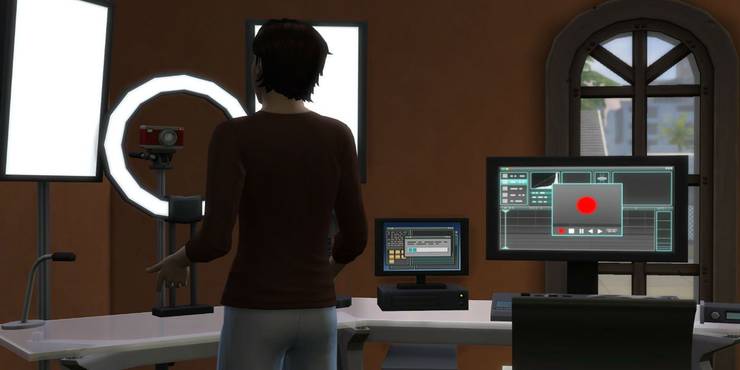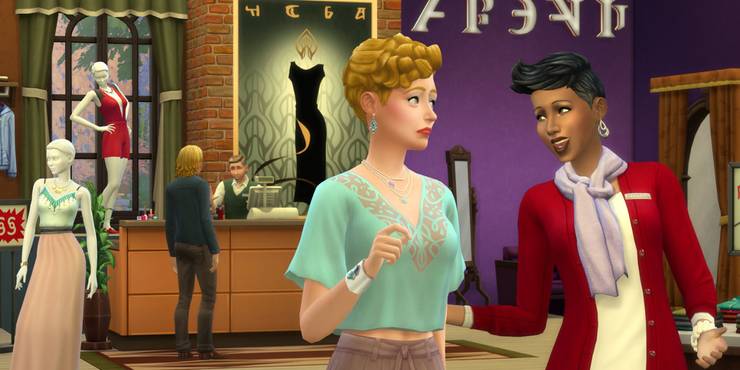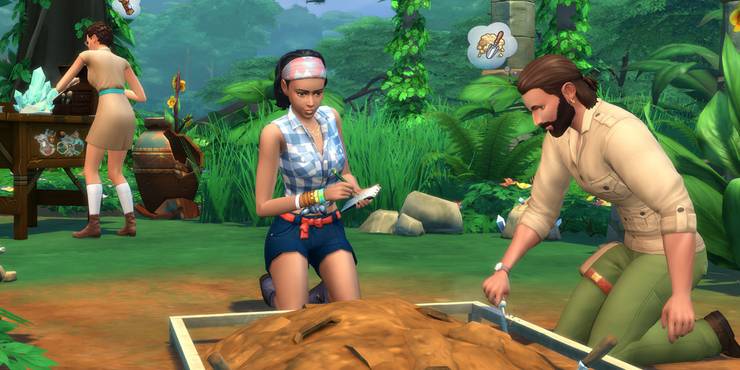I’ve recently contemplated getting back into The Sims 4. It’s been over a year since I had a proper go, and I wanted to check out some of the newer expansion packs and kits – of which there are a lot. So, I went to Steam, opened the store page, had a look at the DLC listing, and read that big number at the bottom. Yikes.
If you want the full Sims 4 experience, get ready to spend almost £1,000. I don’t need it all, but just seeing a listing that pricey has turned me away. I don’t want to risk getting sucked into a game that will plaster tempting images on the home page, asking me to throw money at it time and time again when I know the content is never going to stop coming no matter how many pennies I throw down.
Instead, out of curiosity, I ran my library through SteamDB’s calculator, which works out the value of your account based on the games you own. My entire library of 505 games is worth £2,108—a little over double The Sims 4’s value including DLC. If I were to buy that entire load right now, I would skyrocket my ten-year-old profile to a value of over £3,000. That doesn’t feel right.

Let’s say you wanted to play everything The Sims 4 has to offer or use its entire toolset provided by the kits—you would have to pay £78 per month for an entire year. You could shrink that down to £39 over two years, but by then, more DLC will have been launched. Alternatively, you could buy a fancy new TV on credit and play anything else, since by the time you’ve finished collecting everything, The Sims 5 might be out.
This is nothing new. The Sims have always been a gleaming example of the worst DLC practices in the industry, but 4 isn’t much better. The Sims 2 used to sell cosmetics for £3 to £5 per item on top of all the packs and expansions. The Sims 3 meanwhile will set you back £341.81, which is still a huge number, but significantly smaller than The Sims 4.
But to be fair to EA and The Sims, let’s look at other simulators. Cities: Skylines DLC will set you back £281.44, nearly catching up to The Sims 3, and Euro Truck Simulator DLC totals at £211.57. Huge swaths of paid content for simulation games is the standard, EA just does it more—and more effectively at that—than its competitors. It’s the leading simulation game, and its crown is a paid royal pack you’re probably best holding off on buying until there’s a sale.

However, it being at the top is exactly why The Sims 5 should approach DLC in a new light. It can set a new standard, and pave the way for the genre to drop massive cosmetic bundles—instead of ones that are tiny, overpriced, and slowly creep up to costing you hundreds. Even its paid expansions that add wholly new gameplay mechanics are flawed.
Each new Sims game starts with a blank slate that, in comparison to the last, feels empty and shallow. The Sims isn’t a truly complete experience until these expansions launch, as everything that was DLC in the past game tends to become DLC all over again, so if you want to have a similar game, you need to fork out.
What makes expansions even more egregious is that the gallery will often flood you with content from other players that rely on this DLC, and to experience it yourself, you need to pay. These creations are the highest rated, plastered in your face to say, “Look what you can achieve if you just spend a little more.” The home page likewise lists DLC, turning The Sims 4 itself into a storefront before you even get stuck in. All of this says buy, buy, buy, but given the amount you’d have to spend to buy everything, the cycle is unlikely to end for most. And by the time you tire of the shiny new thing, something else will have launched, and the backlog grows, so FOMO sets in.

Given The Sims 4’s success, I expect to look over The Sims 5 in ten, or maybe fifteen years and see a list of DLC amounting to double that of 4’s. Instead of £900 for everything, it’ll be £1800—it works, EA knows it works, and people will keep buying expansions, even if it’s for the content they’ve now bought three times over. And all it does is say to other simulation games that this is the only way to make money and keep players invested, turning an entire genre into a cash cow that was milked dry a decade ago.
